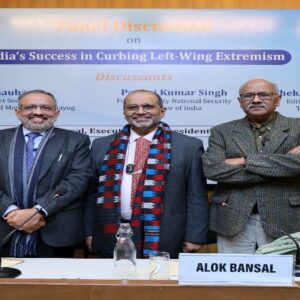~ By Bhupender Yadav
Before we discuss simultaneous elections, we should understand what the purpose of elections in a democracy is. The reason political parties are given an opportunity to contest elections is so that they can form a government and work for the welfare of public. However, in our country, without a timetable for elections, political parties are perpetually in election mode.
Let me share a personal experience. In 2013, we started preparing for Rajasthan assembly elections in April-May. Since elections were in October, model code of conduct was imposed in July-August. By December we formed our government and presented an interim budget in February 2014 before LokSabha elections were announced. By June 2014 the national polls were over but before we could begin working, local body polls were announced and model code of conduct was imposedagain. So from May 2013 to Feb 2015, Rajasthan government was continually in election mode.
This reminds me about Gandhi’s statement on means and ends. Our end is to have a government that works for the people for a period of five years but the means we have chosen are not delivering it. Even political parties are contesting elections based on short-term, immediate issues and not long-term policies that will deliver sustainable benefits to the public- just look at their manifestoes and vision documents.
To fix this problem, we must first arrive at a consensus that elections are just a means not an end. Therefore, it is imperative that they should happen as per a fixed schedule causing minimum inconvenience to the ultimate end of delivering governance. When we have LokSabha polls in 2019, there will be about 26 states where elections will be due since May-June 2018. Those states where such elections are due, can hold elections in two batches of 2.5 years each. This can be the beginning of the process of setting up a timetable for elections.
Ultimately the biggest beneficiary of such a timetable will be the public because it will greatly curtail the influence of money in politics and policy-making. Simultaneous elections will also enable a level playing field. If the state has to provide platforms for political parties to debate and discuss respective ideologies, issues of good governance, it is a welcome step.
Transparency in electoral spending is a must. Either we strictly implement the cap of Rs.40-50 lakh on electoral spending to propagate one’s ideology or completely do away with a cap while ensuring that all expenditure is accountable. Removing a spending cap will also ensure that the public knows how much money power is being flexed by respective candidates.
What if a government is not able to complete its term and falls prematurely? Maybe we can have a simultaneous confidence motion in favour of a new formation along with a no-confidence motion against the present government. Else, maybe we can have an alternate arrangement for the remaining term.
For example, in RajyaSabha if a seat falls vacant before the fixed term of 6 years, we have elections only for the remaining term. Can we do something similar for state assemblies and national parliament? How will any such arrangement reflect the will of the people? Another issue is the conduct of bye-elections in a regime of simultaneous elections. We will have to fix a designated time during the year when all bye-elections are held. What about anti-defection law and what will be the role of the Speaker?
These are issues on which we need to have a healthy public debate and any one person (including me) cannot decide what the best course is. My purpose here is just to highlight these issues. My larger point is that as a nation, we need to start working towards a timetable for elections and bring transparency in electoral funding. Countries all over the world are coming around to the importance of this idea. For example, Britain passed a law in 2011 that fixed the national electoral calendar.
Finally, I want to reiterate that our mandate should be to deliver a stable government and good governance between elections without being prejudiced on the issues of caste, religion, language and other fault lines. For this to happen, we need to seriously undertake electoral reforms in the country. I wish to thank India Foundation for starting this important debate in India and inviting me to participate in the deliberations.
(This article is the gist of the address made by Bhupender Yadav, National General Secretary, BharatiyaJanata Party, at the symposium on ‘One Nation, One Election’ jointly organized by India Foundation and Nehru Memorial Museum and Library on 26th November, 2016)




